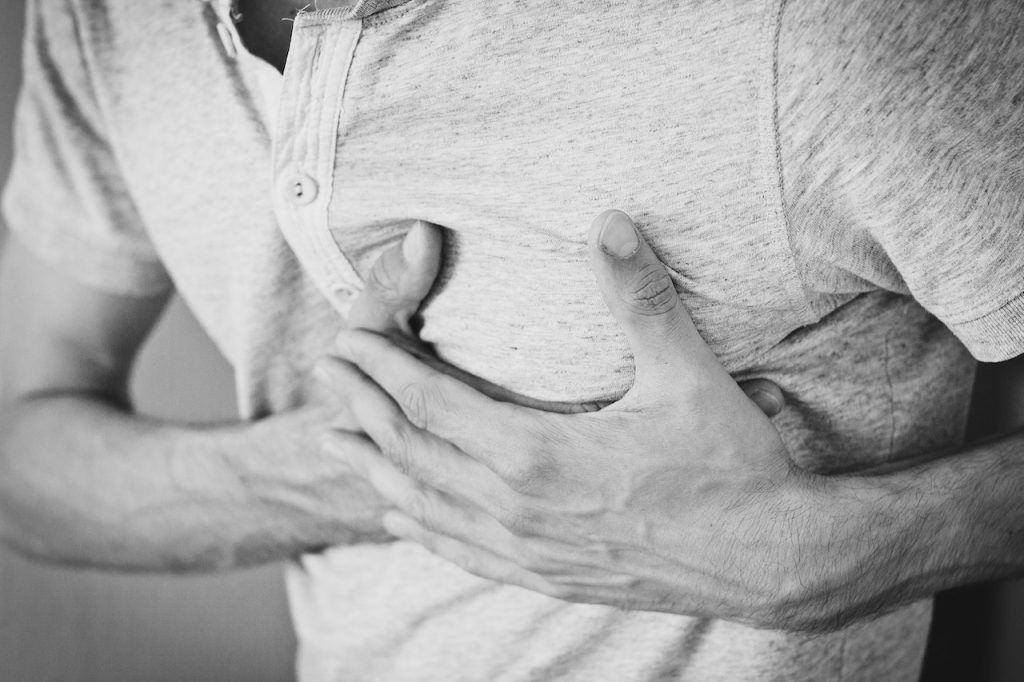COVID-19 is a viral infection that enters your body through your mouth, nose, or eyes. History is telling us that for most people, it’s not life-threatening. Approximately 80% of COVID-19 patients experience mild symptoms, such as headache, cough, or fever, which they can manage at home following their doctor’s guidance. However, that’s not the case for a smaller group of people.
To be clear, mild symptoms of COVID-19 don’t entirely mean that you’re safe from the severity of the virus. If you have any underlying medical conditions or are elderly, there is a higher risk that COVID-19 could be far more concerning. And even if you don’t fall into one of those groups (and even if you’re perfectly healthy), there are still indications that you could be in trouble.
What are the Severe Symptoms of COVID-19?
Moderate symptoms can progress to severe symptoms. If you exhibit any of the following symptoms, you could be dealing with a more severe case of COVID-19 and should seek medical help immediately.
1. Lung Complications
COVID-19 mainly affects the lungs and can send them into failure. Acute respiratory distress syndrome (ARDS) is one of the possible complications that come with the severity of COVID. ARDS occurs when fluid builds up in your lungs, severely damaging the organ. As a result, oxygen fails to go to the bloodstream and your other organs.

Other lung complications to worry about are pneumonia, which causes shortness of breath and tightening and pain in the chest. Your immune system goes to work trying to attack the infection in your lungs. They then get inflamed and fill with fluid, and that’s what makes it hard to breathe.
Aside from difficulty breathing, watch for bluish/pale skin or nails. This indicates a lack of oxygen in your body. When your lungs fail to take enough oxygen during the breathing process, your body loses its color.
2. Kidney Problems
Research shows that patients with severe COVID-19 cases can also experience kidney disease, even if they’ve never had kidney problems. This might be indicated by higher levels of protein or blood in the individual’s urine. Over 30% of patients who are hospitalized with COVID develop kidney injury. More than 50% in the ICU may even require dialysis.
3. Liver Problems
Patients with severe cases of COVID-19 could be at an increased risk of exhibiting liver dysfunction or damage. Your liver enzymes increase, but — deceivingly — this can happen later on after being diagnosed with COVID. In other words, don’t automatically assume you’re out of the woods after a week or so.
4. Heart Complications
Coronavirus can mean that you’re ultimately dealing with heart palpitations, dizziness, chest pain, and trouble breathing, all of which can stem from heart problems. The culprits? A lack of oxygen and inflammation of the heart. The latter reduces the heart’s ability to pump blood.

5. Cognitive and Neurological Impairment
Coronavirus can impact your brain, altering its function and structure. The distortion of the brain function leads to symptoms like confusion and a loss of smell and taste. Even younger patients in their 30s and 40s are dealing with stroke, which can lead to life-altering neurological problems.
How You Can Manage COVID-19 Symptoms
For most people, COVID-19 is not life-threatening. You can experience mild symptoms and not require any hospitalization. However, there are still extra steps you can take as a precaution. Better manage the symptoms by:
- Staying hydrated. This helps to thin out your respiratory secretions so that they can clear out from your lungs. Without this process, you’re likelier to get pneumonia.
- Getting plenty of rest. A fatigued body isn’t as capable of fighting COVID-19 (or anything else).
- Eating plenty of nutrient-dense foods. Protein and vitamins C and D are vital.
- Monitoring your symptoms, and if they get worse, consult your medical provider.
You should also separate yourself from others and avoid sharing personal items. These proactive measures will control the spread of the virus to other people.
What Can You Do to Avoid Getting COVID-19?
While you can’t control the people around you, there are preventive measures you can take to decrease your chances of getting the virus.

- Get vaccinated: Getting the vaccine is one of the best methods of preventing COVID-19. And even if you do get the coronavirus, your symptoms are likelier to be milder.
- Keep your hands clean and avoid touching your face: COVID-19 can enter your body through the nose, eyes, and mouth. Therefore, washing your hands frequently with soap and water is essential. If water is unavailable, use a hand sanitizer with at least 60% alcohol content.
- Wear a face mask: It can be tough to avoid touching your face. A mask will act as a good barrier between your face and hands. You should also wear a mask in public or anywhere else where there’s a crowd of people. Wear it properly by ensuring it covers your nose, mouth, and chin.
- Continue social distancing: When possible, avoid crowded areas since COVID-19 can quickly spread in these environments.
If you suspect you’ve been exposed to the coronavirus, get a COVID-19 test, self-quarantine, and watch your symptoms closely. COVID-19 is not life-threatening to most individuals, and they can continue their everyday lives after managing the disease well. However, while they’re still contagious, they should self-isolate. Call your health care provider for further treatment if you feel that you are progressing from mild to severe symptoms.
Remember, we all have a responsibility to each other to stop the spread of the coronavirus. When you take care of your own health, as a byproduct, you take care of others.













